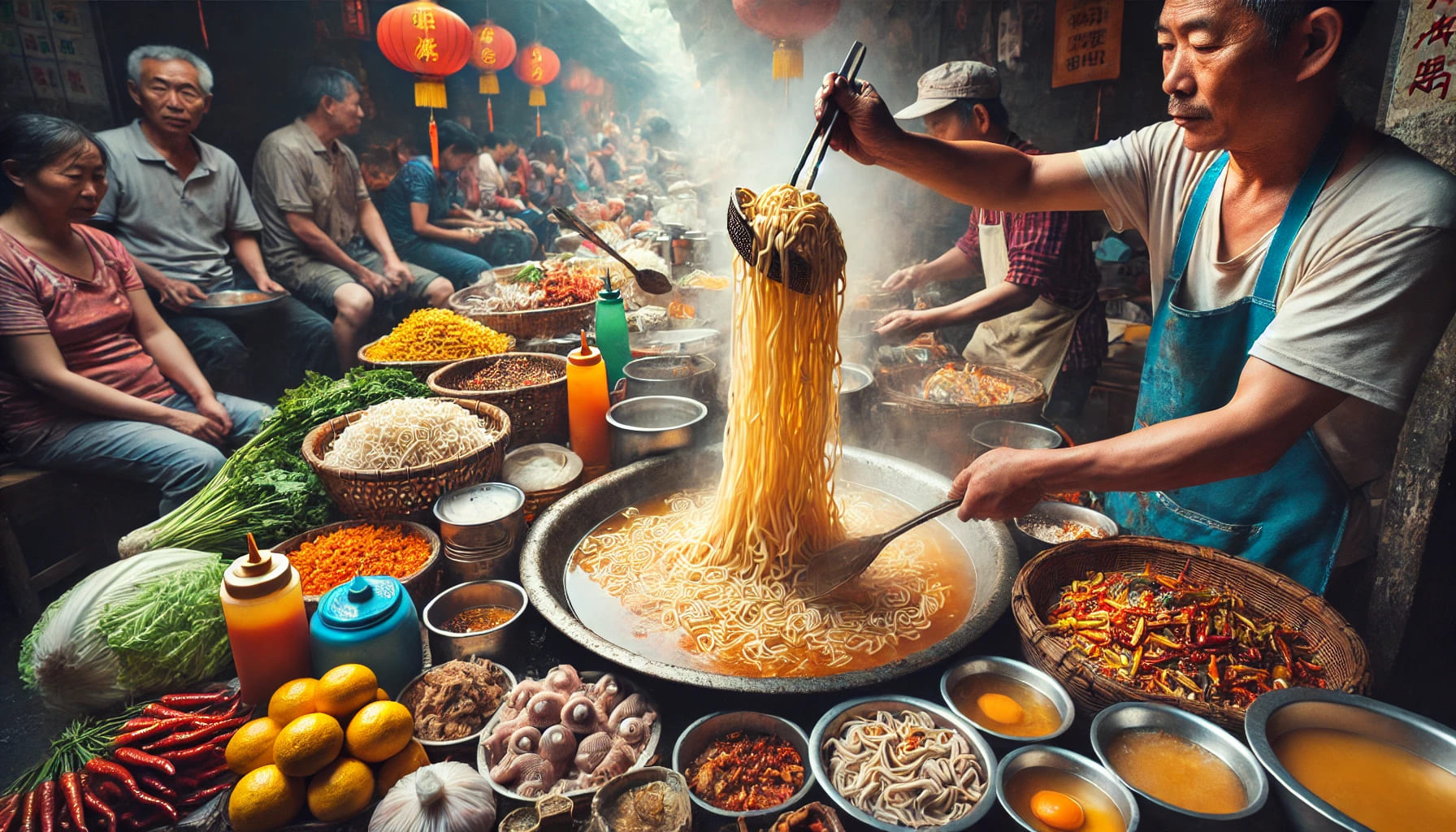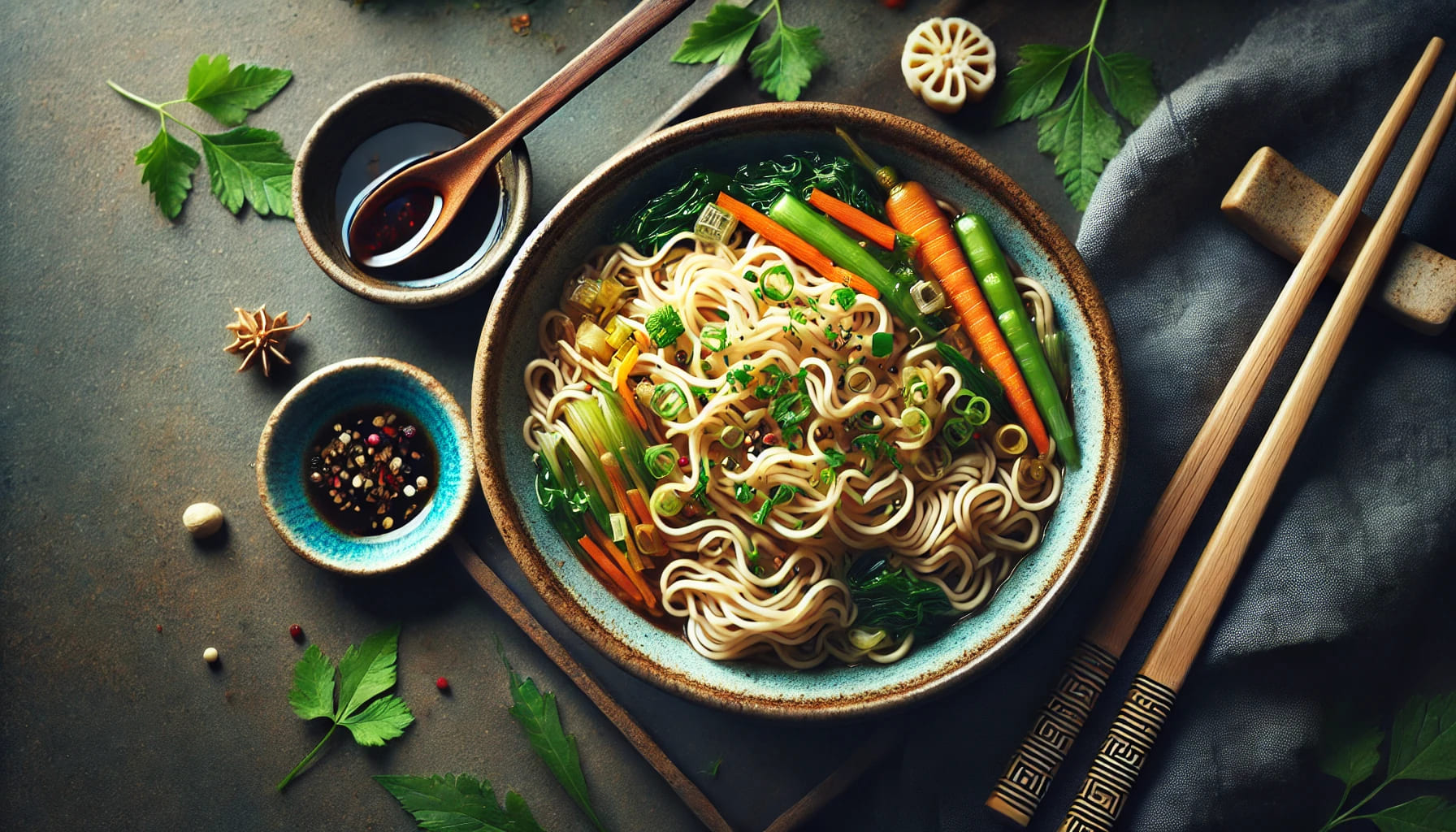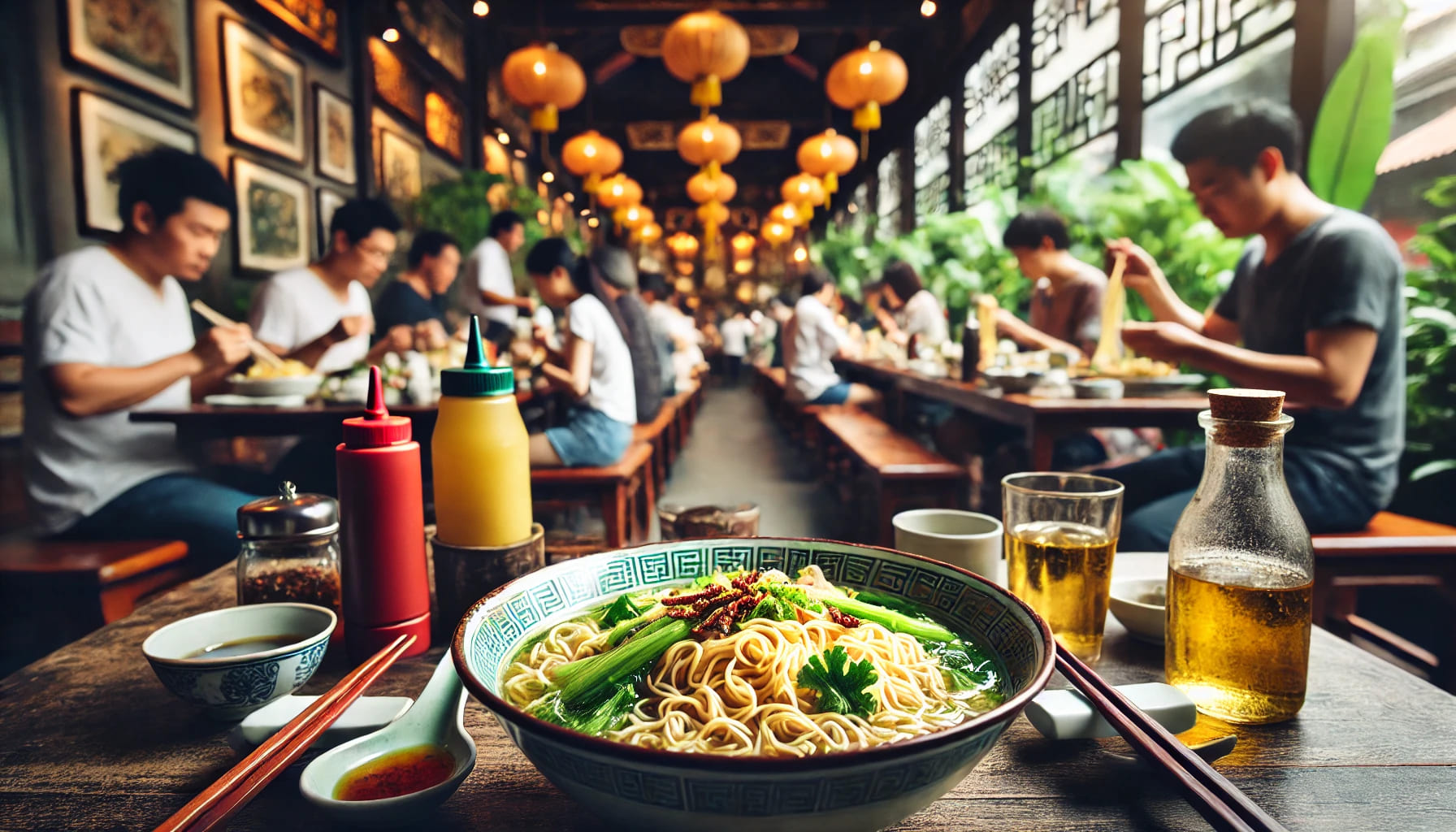
Why Chinese noodles are usually served with vinegar?
Introduction
If you've ever dined in a traditional Chinese restaurant, you might have noticed the frequent pairing of noodles with vinegar. This combination isn't just a random addition; it's deeply rooted in Chinese culinary culture. The sharp tang of vinegar complements the savory taste of the noodles, creating a balanced and flavorful dish. In this article, we'll explore why Chinese noodles are usually served with vinegar, delving into the historical, cultural, and practical reasons behind this practice.
About The Magic Noodle in Las Vegas

Before we dive deeper into the topic, let's take a moment to introduce a notable restaurant that exemplifies the art of Chinese noodle cuisine. The Magic Noodle in Las Vegas is renowned for its authentic and delectable Chinese noodle dishes. This restaurant has gained a reputation for its handmade noodles and traditional recipes, bringing a taste of China to the heart of Las Vegas. If you're ever in the area, The Magic Noodle is a must-visit destination for anyone looking to experience genuine Chinese flavors. You can visite website to check the menu: https://themagicnoodle.net/
The Historical Context of Vinegar in Chinese Cuisine
Vinegar has been a staple in Chinese cuisine for over 3,000 years. Historically, it was used not only for its flavor but also for its medicinal properties. Ancient Chinese texts mention vinegar as a treatment for various ailments, including digestive issues and infections. The tradition of pairing vinegar with Chinese noodles likely began due to its perceived health benefits and ability to enhance the dish's flavor.
The Flavor Profile: Balancing Savory and Sour
One of the main reasons vinegar is added to Chinese noodles is to balance the flavors. Noodles, especially those served in rich broths or stir-fried with savory sauces, can be heavy and umami-rich. Vinegar cuts through this richness, adding a sharp, tangy note that brightens the overall flavor. This balance is essential in Chinese cooking, where the harmony of flavors is a core principle.
Enhancing Digestion and Health Benefits

Vinegar is known to aid digestion, which is another reason it's commonly served with Chinese noodles. The acidity of vinegar can help break down the starches in the noodles, making them easier to digest. Additionally, vinegar is believed to have various health benefits, including improving blood sugar levels, boosting gut health, and providing antimicrobial properties. These benefits make it a practical addition to a hearty noodle dish.
Regional Variations in Vinegar Usage
Different regions in China have their own unique types of vinegar and ways of incorporating it into noodle dishes. For instance, Shanxi province is famous for its aged vinegar, which has a complex flavor profile and is often used in noodle soups and dumplings. In contrast, Zhejiang province produces a milder, sweeter vinegar that's perfect for cold noodle salads. These regional variations highlight the versatility and importance of vinegar in Chinese cuisine.
Popular Chinese Noodle Dishes with Vinegar
Several famous Chinese noodle dishes feature vinegar prominently. Some of these include:
- Hot and Sour Noodles: A spicy and tangy noodle dish that combines the heat of chili oil with the sharpness of vinegar.
- Zha Jiang Mian: This dish features wheat noodles topped with a savory soybean paste, with vinegar added to balance the rich flavors.
- Sour and Spicy Noodles : A popular street food made with thick sweet potato noodles, chili oil, and black vinegar.
The Cultural Significance of Vinegar in Noodle Dishes
In Chinese culture, vinegar is more than just a condiment; it's a symbol of health and longevity. Serving noodles with vinegar during special occasions, such as birthdays and festivals, is common, as it signifies good health and prosperity. The tradition of pairing vinegar with noodles is deeply embedded in Chinese culinary practices, reflecting the cultural importance of maintaining balance and harmony in meals.
Practical Tips for Using Vinegar with Chinese Noodles at Home
If you're inspired to try this combination at home, here are some practical tips:
- Choose the Right Vinegar: Depending on the dish, select a vinegar that complements the flavors. For instance, use black vinegar for a richer taste or rice vinegar for a milder, sweeter note.
- Add Sparingly: Start with a small amount of vinegar and adjust to taste. The goal is to enhance, not overpower, the dish.
- Pair with Complementary Ingredients: Ingredients like garlic, ginger, and chili can enhance the vinegar's flavor in your noodle dish.
The Science Behind the Pairing

Understanding the science behind why vinegar pairs so well with Chinese noodles can enhance your appreciation of this culinary practice. The acidity in vinegar reacts with the alkaline nature of some noodles, particularly those made with alkaline water (such as ramen), resulting in a perfectly balanced taste. This chemical reaction not only enhances the flavor but also improves the texture of the noodles, making them more enjoyable to eat.
How Vinegar Elevates the Dining Experience
The sensory experience of eating noodles with vinegar is unique. The initial burst of tanginess from the vinegar awakens the palate, preparing it for the rich, umami flavors of the noodles. This contrast between sharp and savory keeps the taste buds engaged, making each bite a new experience. Additionally, the aroma of vinegar can stimulate appetite, making the meal even more satisfying.
Incorporating Vinegar into Modern Chinese Cuisine
While the traditional use of vinegar with Chinese noodles remains popular, modern chefs are finding innovative ways to incorporate vinegar into their dishes. From fusion cuisine to gourmet interpretations of classic recipes, vinegar continues to play a crucial role. Chefs at upscale Chinese restaurants and modern eateries are experimenting with different types of vinegar, creating new and exciting flavor profiles that honor tradition while embracing innovation.
Conclusion
The practice of serving Chinese noodles with vinegar is a testament to the rich culinary traditions of China. This combination not only enhances the dish's flavor but also offers health benefits and cultural significance. Whether you're enjoying a bowl of hot and sour noodles or a plate of zha jiang mian, adding a splash of vinegar can elevate your dining experience. Embrace this tradition and discover the delicious harmony it brings to your meals. If you ever find yourself in Las Vegas, be sure to visit The Magic Noodle to experience authentic Chinese noodle dishes and see firsthand how vinegar enhances their flavor.


